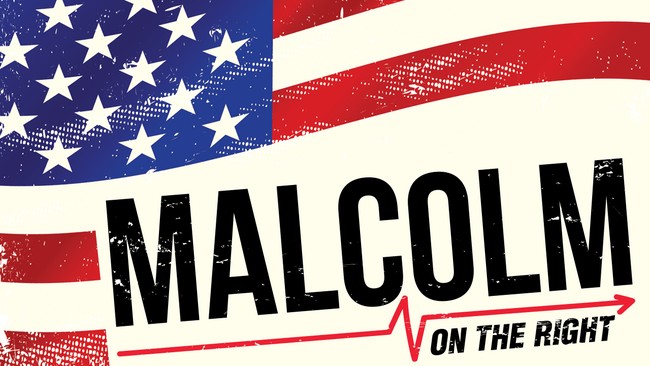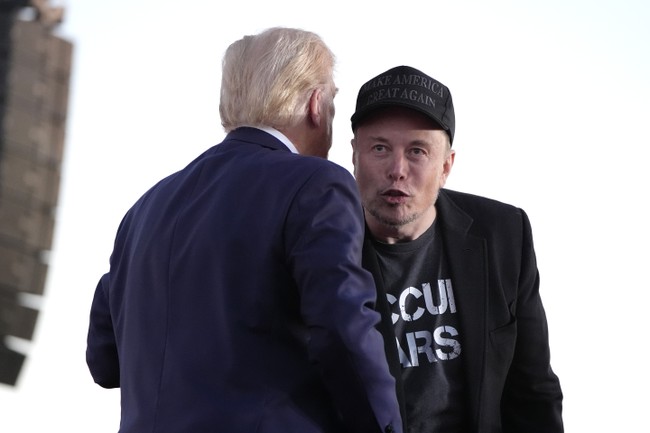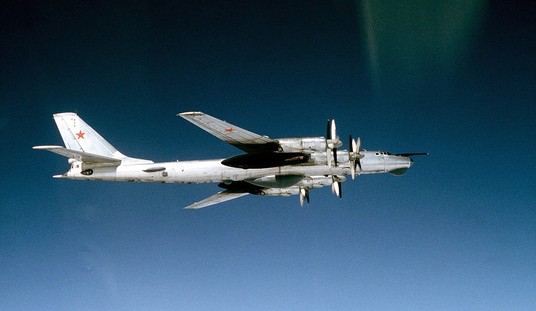Almost 70 years ago, the U.S. State Department dispatched a new ambassador to a Southeast Asian nation. As often seemed to happen, the new U.S. official was no expert on the nation, its economy, or its culture. He did not speak the language. And his concerns were more geopolitical and career-oriented.
To be honest, the ambassador’s most important job had nothing to do with representing the U.S. there or helping that nation. It was instead bolstering that country against the advancing threat of Communism.
At that time in the 1950s, the subversive threat of that evil ideology had gripped the American psyche throughout government and entertainment all the way down to elementary schools, where even kindergartners practiced air-raid drills.
Government reactions, over-reactions, and some stupidity caused a cascading array of official decisions over decades, each one seemingly reasonable at the time, that collectively led to the need for this overdue federal housecleaning.
Now, the results of those potent fears and shortsighted decisions are culminating in an explosive Washington scandal and unfolding crisis over USAID under the new aggressive Trump Administration. The impacts run through thousands of employees, likely millions of beneficiaries in 177 countries, and affect the U.S. image around the world.
This explains why the developing details of outrageous abuse of taxpayer money by Woke USAID officials are resonating so profoundly in this country and, indeed, globally. This crisis reckoning is far from over.
Communism at the time of that ambassador’s appointment was the worst threat ever to global democracy. It had already taken over Eastern Europe, prompted the Korean War, and was inspiring guerrilla movements around the world, especially in Asia, where some colonial powers like France still reigned.
Using the American Revolution against Britain as his model for successful guerilla warfare, Ho Chi Minh was succeeding in ousting the French from Indochina, soon to become Vietnam.
It turns out, this story about the ignorant, bumbling new U.S. ambassador was all made up, total fiction. It was the plot of “The Ugly American,” a blockbuster 1958 novel that would shape the thinking of a future president and millions more through a successful movie starring some actor in his 30s named Marlon Brando.
The compelling book by Eugene Burdick and William Lederer was a longtime best-seller. It spoke to a deep-seated American fear, which survives to this day, that the world’s bad guys would be victorious because a naïve United States, geographically isolated from foreign trouble spots, failed to fully accept its responsibility to help other countries and thereby protect itself.
A stipulation: Whether Americans realize it or not, despite our faults at times we have been the most generous of peoples for more than a century.
During and long after World War I, the U.S. produced and sent millions of tons of food to feed war-torn Europe. That effort was spearheaded by an Iowa orphan and mining engineer named Herbert Hoover, who gained international fame.
He also served as Secretary of Commerce and, in 1928, became the first Quaker and last Cabinet member to win election as president.
The vast Marshall Plan to feed and rebuild Europe after World War II cemented a reputation for generosity in the minds of the world and ourselves and a dawning awareness that Americans had a strong self-interest in helping others.
As someone who read Ugly American at the time, I can say the psychological impact of that book was even stronger than the 1974 one for “Jaws,” which unleashed our inner fears of immense monsters just out of sight.
The warnings of Ugly American — that the U.S. had to be smarter abroad — so impressed first-term Sen. John F. Kennedy (D-MA) that he gave copies to every other senator. And then, two years later, he took those impressions with him into the White House with some lethal consequences.
Our long-lived democracy has many blessings, some of which can also become drawbacks. No president can serve more than eight years. This guarantees the regular infusion of fresh blood and ideas.
Authoritarian adversaries do not have such limitations. So, Ho Chi Minh’s insurrection in Vietnam, which outlasted Americans' willingness to help, the Taliban's return in Afghanistan, and the Russian invasion of Ukraine by Vladimir Putin, who's trying the same strategy, are free of any limits on bloodshed and time imposed by impatient free voters, who dislike weekly casualty totals.
Just four months into his presidency, Kennedy reversed President Eisenhower’s policy of non-intervention in foreign conflicts. That had kept the U.S. out of fighting in Indochina and Egypt when France and Britain seized the Suez Canal.
Fatefully, in May 1961, Kennedy sent 500 troops to South Vietnam. They were just going to advise the local army, you understand, in its struggle against Communists infiltrating from North Vietnam.
In the beginning, U.S. forces were not even allowed to return fire if attacked. However, under three successive presidents, something called mission creep took over.
In the next 14 years, some three million U.S. service personnel would enter combat there, 58,279 would not come home alive, and unknown thousands returned with physical wounds or mental trauma that emerged later. South Korean and Australian allies also suffered significant casualties.
The Communists won anyway.

Fast forward to Afghanistan, 2001. The initial decision seemed reasonable for the U.S. and NATO allies to attack al Qaeda there and the Taliban, which had hosted terrorist training camps for the 9/11 attacks.
But then, once again, mission creep slipped in. After routing the terrorists, it seemed wanton to Washington to simply leave the wreckage and abandon freed Afghans, and reasonable to help create a stable, free society in what remains a semi-feudal collection of tribal warlords. The new mission was called nation-building.
Three hundred years before Christ, Alexander the Great could not pacify what became Afghanistan. Nor could the British in the 1800s. In 1989, the Soviets gave up their attempt after 10 years.
It took the U.S. and allies 20 years before they gave up and left in a humiliating 2021 withdrawal that Joe Biden's ineptness made worse than necessary.
The Western costs were 2,465 U.S. service fatalities, 1,144 allied and contractor deaths, and $2.3 trillion.
The Taliban won anyway.
Now, we return to the U.S. Agency for International Development, which was active there. The goal of President Kennedy, who also founded the Peace Corps, was to unite scattered foreign aid programs in one semi-independent agency under the State Department to promote social and economic progress in other countries.
Similar bureaucratic thinking emerged 40 years later when the 9/11 Commission realized several intelligence agencies detected pieces of al Qaeda’s plans for mass terrorism. But none knew enough to assemble the big picture. So, the unifying Director of National Intelligence was created.
Dominant in the sixties was the reasonable desire to win friends and strengthen members of the free world, thereby weakening Communism, countering the lingering ugly American image, and, theoretically, avoiding future combat.
Signing the executive order in 1961, Kennedy’s typically eloquent founding statement:
There is no escaping our obligations: our moral obligations as a wise leader and good neighbor in the interdependent community of free nations – our economic obligations as the wealthiest people in a world of largely poor people, as a nation no longer dependent upon the loans from abroad that once helped us develop our own economy – and our political obligations as the single largest counter to the adversaries of freedom.
Foreign aid has never been politically popular in the U.S. — the usual complaint focusing on the need to do things at home first.
There is no doubt, however, that some of the billions distributed by USAID have benefited many millions. The agency helped eradicate smallpox, stemmed the spread of AIDS in Africa, and provides treatments.
The mission was to make investments abroad that would encourage and ignite further progress. Not provide free lunches today but teach literacy so people could get better jobs tomorrow. Help provide clean water and teach better health care, especially for infants and children. Provide nutritional guidance. Improve agricultural methods to boost production and reduce erosion and pests.
Surveys show Americans believe the government spends far too many taxpayer dollars on foreign aid with estimates ranging from 10 percent of the budget to 25 percent.
The fact is that although the U.S. is by far the world’s largest provider of foreign aid, such spending only runs around one percent of the total federal budget of $6.1 trillion; in Fiscal Year 2023, it was 1.2 percent.
The amount fluctuates depending on factors such as wars, disease outbreaks, and natural disasters and, this year, the shifting priorities of the new Trump administration.
The current 2025 fiscal year budget puts total foreign assistance on track for $58.4 billion, according to the Congressional Budget Office.
However, we are only a third of the way through the fiscal year, and the new administration is levying curbs and readjustments that will change totals.
According to the Brookings Institution:
There is a broad international commitment that wealthy countries should provide annually 0.7 percent of GNP to assist poor countries. Five countries (Norway, Sweden, Luxembourg, Denmark, and the U.K.) exceed that benchmark.
The average for all wealthy nations is around 0.4 percent. The U.S. ranks near the bottom at below 0.2 percent.
In his first week, Trump ordered a pause on all foreign aid payments. pending a review to ensure they match his priorities. The only exemptions were emergency food and some military aid.
All 20,000 USAID employees were put on paid leave with the reported expectation that most would be let go. The agency was placed directly under Secretary of State Marco Rubio. And the building was turned over to the Border Patrol.
Rubio described USAID as being insubordinate to outside authorities, granting money to favored ideologies without regard to US priorities. “They just think they’re a global entity and that their master is the globe and not the United States. And that’s not sustainable,” Rubio said.
Staff for the new Department of Government Efficiency closed the USAID building. “USAID is going to have to justify its existence,” said Sen Lindsey Graham (R-SC). “When you look at some of the money they’re spending … it’s not gonna pass the smell test.”
What smells is USAID spending that has nothing to do with developing a country, namely promoting Democrat DEI ideology abroad and financing leftist groups and even domestic U.S. media that favored the Biden administration.
Or, as our new president put it more directly: “It’s been run by a bunch of radical lunatics, and we’re getting them out.”
With little or no adult supervision during the Joe Biden coma years, USAID leadership steered agency spending off its founding Kennedy intentions to drive an ultra-liberal agenda, especially on issues of DEI, which they saw emphasized elsewhere by Biden aides.
Whistleblowers reported the excesses, which were confirmed when staff of Elon Musk’s Department of Government Efficiency closed the department and began mining records.
Reported USAID expenditures included funding for hundreds of thousands of meals for al Qaeda fighters in Syria, a censorship program in London, $2.5 million for electric vehicles in Vietnam, DEI theatrical productions, a transgender comic book and job promotions, a Guatemalan group to promote sex change operations.
In 2018, $330 million in USAID money went to Afghanistan allegedly to assist transitions from opium farming. It actually went to build irrigation systems, which assisted opium production.
Additionally, multiple millions went to support leftist U.S. publications such as Politico, allegedly for hundreds of subscriptions for USAID and many other government agencies.
You may recall it was Politico that first ran with the letter signed by 51 former intelligence officials claiming that the Hunter Biden laptop story was Russian disinformation.
My colleague Nick Arama posted another long list of outrageous foreign spending by USAID leaders.
And Streiff covered the White House quickly canceling all the subscriptions. And just as quickly launching a full-scale investigation. And now has detailed media lies in their own defense.
Trump critics promptly ran to sympathetic federal judges trying to stymie the Republican's actions, as they did during his first term on projects like the border wall. Trump is ready this time, acting faster on simultaneous programs that so far have overwhelmed opponents.
Predictably, mainstream media rushed to support each other, expressing outrage that Musk’s DOGE was exposing and halting USAID excesses and reporting in detail the professed distress of bureaucrats and Democrat allies. Not so much the delight of taxpayers unburdened by what has been.
My favorite "unbiased" coverage came from the New York Times: "Foreign Strongmen Cheer as Musk Dismantles U.S. Aid Agency."
Soon, we will be treated to the violin music of media accounts about individual natives somewhere reportedly enduring simply awful hardships because of the mean president’s minions enforcing proper controls on USAID’s rogue spending of taxpayer dollars.
As usual, it was Rubio’s calm, reasoned voice that rose above the chaotic clatter: “There are a lot of functions of USAID that are going to continue, that are going to be part of American foreign policy. But it has to be aligned with American foreign policy.”
That is such a crazy idea it sounds like common sense.














